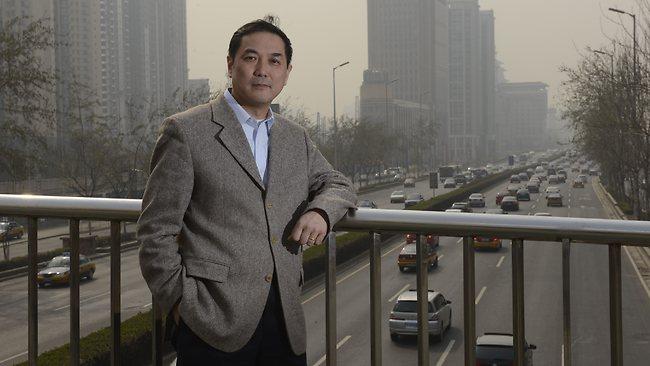Encourage foreign investment or risk trade ties, says adviser
A LEADING Chinese government adviser has warned that Australia is at risk of becoming an unreliable trading partner.

A LEADING Chinese government adviser has warned that Australia is at risk of becoming an unreliable trading partner and should encourage more foreign investment to shore up future gas supplies and meet the rising demand from the Asian region.
As Julia Gillard prepares to lead the most senior Australian political delegation ever to visit China, meeting the nation's new leadership, Han Xiaoping, who runs one of the country's largest independent energy consultancy groups, said a growing number of Chinese firms were keen to invest in Australian gas projects but were concerned about the nation's sovereign risks.
Mr Han, who advises China's main economic planning agency, the National Development and Reform Commission, said there was now a growing level of distrust in Australia among Chinese investors.
"Australia is not regarded as a reliable trading partner," Mr Han told The Australian.
"Many people in the industry don't believe Australia is a stable supply partner, it is a partner that wants to hold all of the aces and it does not treat China in a friendly manner.
"The dispute over iron ore supply and the not-so-favourable investment environment in Australia towards Chinese companies have also enhanced people's awareness as well."
Trade Minister Craig Emerson last night disputed claims the Chinese viewed Australia as an unreliable or difficult place to invest.
He said that since 2007, Chinese companies had made 350 applications for investment in Australia and none had been rejected, with conditions applied to just six.
Dr Emerson said he had also recently met with the chairman of the China Investment Corporation, the country's giant sovereign wealth fund.
"They have a very strong interest in investing in Australia, particularly in food manufacturing businesses," he said.
China has consistently lobbied Canberra to change the structure of the iron ore market in a bid to lower the commodity's price and the NDRC recently accused the world's major iron ore producers, led by BHP Billiton and Rio Tinto, of distorting the market by deliberately holding back supply to drive up the price.
Wayne Swan's decision to block Minmetals from buying all of OZ Minerals because the Prominent Hill mine was near the Woomera defence zone in 2009 remains a sticking point for Chinese investors.
And a bid by the China Nonferrous Metals Mining Corporation to take a majority stake in rare-earths miner Lynas was also dropped that year after concerns were raised by Australia's Foreign Investment Review Board.
Australia exported 3.6 million tonnes of LNG to China last year worth $US630 million and analysts say demand in the world's fastest-growing developing economy could double in the next four years. China has revealed it plans to cap coal consumption for at least the next two years as it reduces reliance on fossil fuels.
And the government faces renewed pressure to increase alternative energy sources to replace coal-fired power generators, blamed for blanketing China in thick pollution for the past three months.
In the next five years, seven Australian LNG projects now under construction at a cost of $180 billion are due to export to Asia from Western Australia, Queensland and the Northern Territory, earning up to $40bn in revenue each year.
China's energy majors Sinopec and China National Offshore Oil Corporation have already signed up to buy gas from the three projects located in Gladstone.
Renowned Beijing business consultant Geoff Raby, a former Australian ambassador to China, said he believed Australian firms would be open to Chinese investment if it made commercial sense.
"These are private deals, the capital expenditure on the projects under development now is massive and a lot of that spending is on infrastructure," Dr Raby said.
"I think there would be interest for investments if it made commercial sense."
Mr Han said Australia should encourage investment from its major Chinese gas customers to strengthen future supply and ensure production deadlines were met. "Australia is facing competition from Russia which is closer and richer in resources and in the long run America's gas might be coming to the Chinese market which is of a very lower price and there is a huge volume," he said.
"Australia needs to allow China to enter the supply chain of production like it allows Japan.
"If it does that then China will consider that its interests are more closely aligned with Australia."
Mr Han's comments come amid ongoing disquiet among eminent business leaders on the investment climate in Australia.
Luke Sayers, the chief executive of PwC, one of Australia's largest consultancy and advisory firms, said on a recent meeting with several billionaires from Singapore he was told of their concern about changing investment rules in Australia, saying he was told that "Australia is difficult to do business with".
Mr Sayers said the investors told him there were "sovereign risk challenges that have emerged here over the last 12 to 24 months".
The warnings come as the Prime Minister arrives in China tomorrow to meet new President Xi Jinping at the Boao Forum for Asia and Premier Li Keqiang in Beijing.
Additional reporting: Andrew White, Zhang Yufei


